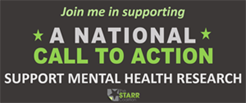As a psychologist and someone who herself has struggled with significant depression and anxiety, the pandemic has started a conversation around mental health that in my opinion was much needed. Every morning, you wake up and see another article surrounding mental health, or your favorite celebrity, youtuber, or tik-toker letting their guard down and opening up about their own mental health struggles. What was once such a taboo subject has now become a topic that everyone is discussing and bringing awareness too. Although this pandemic has now led to what is being described as a “mental health crisis” or a “mental health pandemic”, we are now more than ever openly discussing challenges, illnesses, and experiences that not too long ago were being endured alone, as well as hidden internally. Discussing mental health has not always been the first-choice topic of conversation. No one wants to be “labeled”, feel embarrassed or perceive that something may be wrong with them. This pandemic has brought clarity and shown us that mental health does not discriminate, it is not a choice, and you cannot just pick and choose what mental illness you will or will not have.
Today when I woke up, I opened the news and saw an article related to mental health. This morning’s article was titled “Why we need a mental health vaccine”, which focused on discussing what kind of treatment that would look like, as well as what are the proactive effects of such a therapy. Ultimately, this style of vaccine would focus on prevention, or targeting mental health symptoms early enough to decrease any long-term effects. Reading that article was comparable to being a kid and seeing a magic trick for the first time. It brought me joy and made me realize how much progression has been made regarding topics of psychological health.
As a psychologist, I am naturally trained in therapy. I know how to understand what my body is feeling, recognize my negative thought processes, and even how to cognitively restructure a lot of the maladaptive interpretations I make. I know how to do all these things, and yet, I do not do them. Why, you may ask… great question, I have absolutely no idea. I have experienced some of the worst anxiety I have ever felt during this last year, I have felt unsure, scared and out of control, but even when considering all of this, I am one of the lucky ones. I am healthy, alive, and have been able to maintain employment. So, with this increase in mental health crises, increase in suicides, increase in mental health as a whole…why am I thankful?
Here is why:
I am thankful for the open conversations.
I am thankful this mental health is being publicly discussed.
I am thankful I watched Paul Gionfriddo, President & CEO of Mental Health America, on MSNBC discussing mental health.
I am proud that this is now a conversation that we are having. That does not mean it does not make me upset to see the countless lives lost, the pain and grief that comes with that, the social isolation, trauma, depression, and anxiety rates rising at alarming rates; however, it does mean is that we no longer need to hide these things, that these are now common topics of conversation that need to be had.
What have I learned:
I have learned to be grateful.
I have learned the importance of self-care even if it may seem selfish.
I have learned patience.
I have learned to listen and understand.
But most importantly, I have learned I want to do more to help this crisis. I want to be heard and I want to be a part of a bigger change for all.
What needs to be done:
More. I work in clinical trials for central nervous system disorders. I have worked in research for almost 12 years. I have been involved in the advancement of medications and treatments for multiple psychiatric disorders.
I have made relationships with advocacy groups to help educate why research within the mental health population is important and a care option for individuals who may have no other access to care.
Untreated mental illness is growing and there is little urgency to help. Only with this type of research (scientific, evidence-based), can we hope to find new advancements, treatments and/or cures for these illnesses. Supporting clinical research within the mental health population will allow us to continue the advancement of medicine and find new ways to treat or even cure these illnesses.
Who can help:
Anyone and everyone. Whether you live with mental illness, whether you are affected by mental illness, care for someone with mental illness, or just want to learn more about mental illness and the care options.
How do we help:
Support and promote research.
Partner with your local advocacy groups (National Alliance for Mental Illness [NAMI], Mental Health America [MHA], etc.) and learn.
Spread awareness, use your social media platforms to open conversations surrounding mental health and continuing research in the field.
Support your peers. Ask questions. Learn about what it is like to live with mental illness. Listen and hear.
So yes, I am thankful for what has come out of this pandemic. I am thankful that we are discussing mental health and I am hopeful with continued discussions and support we will be able to get on top of this “crisis” and continue to educate, train and advance conversations and treatments related to mental health.
To learn more about clinical trials and/or participate, please visit: FAQs | Segal Trials

If you would like to join the National Call 2 Action for supporting Mental Health Research, please check out: Support Mental Health Research! | The STARR Coalition


